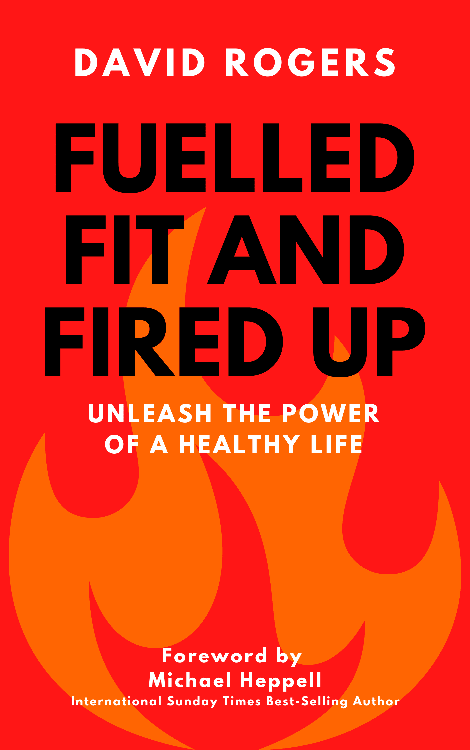
Take A Gamble
Do you ever find yourself referencing specific quotes on a regular basis?
Over recent weeks I have been reflecting on and talking about some of the situations that have made me who I am today. The conversations have covered health, business, and life, reminding me of this brilliant sentence attributed to Seneca, a Roman philosopher, ‘luck is what happens when preparation meets opportunity.'
The phrase "preparation meets opportunity" means that when you are prepared for something, you are more likely to succeed when the opportunity arises. This is because you have the knowledge, skills, and experience necessary to take advantage of the opportunity.
There are many examples of how preparation can lead to success. For example, if you are preparing for a job interview, you will be more likely to succeed if you have researched the company, practised your interview skills, and dressed professionally. Similarly, if you are preparing for a test, you will be more likely to succeed if you have studied the material and practised the questions.
Of course, preparation is not always enough to guarantee success. There are many other factors that can play a role, such as luck and chance. However, preparation can give you a significant advantage and increase your chances of success.

But, is there ‘science’ behind being ‘lucky’?
Luck is a complex phenomenon that has been studied by scientists for centuries. There are many different theories about what luck is and how it works, but there is no single definitive answer. Some scientists believe that luck is simply a matter of chance, while others believe that it is influenced by a variety of factors, including personality traits, cognitive biases, and even genetics.
One of the most well-known theories about luck is the "hot hand" theory, which suggests that people who are lucky in one area of their lives are more likely to be lucky in other areas. This theory is based on the observation that people who are successful in one area, such as sports or business, often seem to have a run of good luck that carries over into other areas of their lives. However, there is no scientific evidence to support the hot hand theory, and it is possible that the apparent correlation between success in one area and luck in another is simply due to chance.
Another theory about luck is the "self-fulfilling prophecy" theory, which suggests that people who believe they are lucky are more likely to take risks and try new things, which in turn increases their chances of success. This theory is supported by some research, which has shown that people who believe they are lucky are more likely to gamble and take risks, and they are also more likely to succeed in these endeavors. However, it is important to note that correlation does not equal causation, and it is possible that people who are lucky are simply more likely to believe that they are lucky.
In addition to personality traits and cognitive biases, there is some evidence that genetics may also play a role in luck. One study found that identical twins were more likely to both report being lucky than fraternal twins, which suggests that there may be a genetic component to luck. However, more research is needed to determine the exact role that genetics plays in luck.
Overall, there is no single definitive answer to the question of what luck is and how it works. However, there is some evidence to suggest that personality traits, cognitive biases, and genetics may all play a role in luck. More research is needed to determine the exact nature of luck and how it can be influenced.

In addition to the scientific theories about luck, there are also many different cultural beliefs about luck. Some cultures believe that luck is something that can be bestowed upon someone by a higher power, while others believe that it is something that can be earned through hard work and determination. There is no single right or wrong way to think about luck, and each person's beliefs about luck are likely to be influenced by their own personal experiences and cultural background.
Can you develop ‘luck’?
It's important to note that luck is not something that is fixed. It can be influenced by your actions, your attitude, and your environment. So, if you want to be luckier, there are things you can do to increase your chances of success.
Here are a few tips to help you become luckier:
Be open to new experiences
One of the best ways to increase your chances of getting lucky is to be open to new experiences. This means trying new things, meeting new people, and exploring new places. When you put yourself out there, you increase your chances of coming across lucky opportunities.
Take risks
Another way to increase your chances of getting lucky is to take risks. This doesn't mean you should go out and do something reckless, but it does mean stepping outside of your comfort zone and trying new things. When you take risks, you open yourself up to the possibility of great rewards.
Be positive
A positive attitude can go a long way when it comes to luck. When you believe in yourself and your ability to succeed, you're more likely to take risks and seize opportunities. You're also more likely to see the good in every situation, which can help you overcome challenges and setbacks.
Be grateful
Finally, it's important to be grateful for the good things in your life. When you appreciate what you have, you're more likely to attract even more good things into your life. So, take some time each day to reflect on all the things you're grateful for, big or small.

Do you believe in luck? Or is it preparation meeting an opportunity?
Whether you believe in luck or not, there is no denying that it can have a significant impact on our lives. Lucky people often seem to have more opportunities and fewer setbacks than unlucky people. They may also be more likely to take risks and try new things, which can lead to even more success. Of course, luck is not the only factor that determines our success in life. Hard work, determination, and intelligence are also important. However, luck can definitely give us a boost and help us achieve our goals.
Remember, preparation meets opportunity is a powerful combination. When you are prepared for something, you are more likely to succeed when the opportunity arises. So don't wait for the opportunity to come knocking, prepare yourself and make it happen!
Have a brilliant week!
Dave Rogers, Chief Business Explorer, Fuelled Fit and Fired Up



